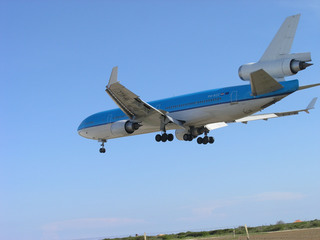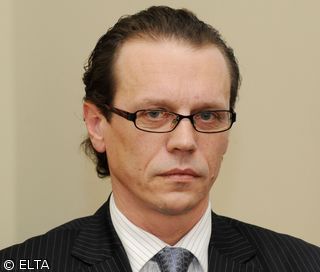Foreign investment flows into Russia plunged to $1.3 billion last year from $20.8 billion in 1998, the Central Bank of Russia reported.
Published:
14 May 2000 y., Sunday
Foreign direct investment rose to $2.9 billion in 1999 from $2.8 billion in the previous year, balance of payments data in the Central Bank's newsletter show. But the outflow of portfolio investment reached $900 million, compared to an increase of $8.3 billion in such foreign investment in 1998.
Foreign loans and credits to the government sector totaled $2.7 billion last year, down from $6.7 billion in 1998. This included $1.3 billion in untied financing: about $1.0 billion in loans from international financial organizations and a loan of $0.3 billion from the Japanese Bank for International Cooperation. Actual government payments on foreign loans and credits totaled $7.2 billion ($5.6 billion on the principle and $1.6 billion in interest), out of the $12.2 billion due; about $3.0 billion in payments were overdue. The proportion of foreign equity ownership in the Russian commercial banking system increased by 70% to 10.7% as of January 1, 2000.
Foreign direct investment into this sector rose to $0.5 billion (including subordinated credits) from an estimated $0.3 billion in 1999.
Last year $11.7 billion in cash foreign currency was brought into Russia (down from $20.7 billion in 1998), including $8.3 billion by the banking system. At the same time, $12.6 billion was taken out of the country ($21.6 billion in 1998), including $5.4 billion through unregistered trade (shuttle traders) and $5.3 billion by tourists. The official foreign currency reserves increased by $1.8 billion in 1999 as a result of operations reflected in the balance of payments.
Šaltinis:
Interfax
Copying, publishing, announcing any information from the News.lt portal without written permission of News.lt editorial office is prohibited.
The most popular articles
 The financial and economic crisis has shown that reckless behaviour of banks and other financial institutions can have serious and costly consequences for Europe's economy and its people.
more »
The financial and economic crisis has shown that reckless behaviour of banks and other financial institutions can have serious and costly consequences for Europe's economy and its people.
more »
 Local services that create jobs and improve energy efficiency received a boost Thursday (2 September) when MEPs on the Industry, Research and Energy Committee approved plans for more investment.
more »
Local services that create jobs and improve energy efficiency received a boost Thursday (2 September) when MEPs on the Industry, Research and Energy Committee approved plans for more investment.
more »
 The European Commission approved the first financing decisions under the EUR 264 million 2010 allocation for the so-called Vulnerability FLEX mechanism to help the most vulnerable African, Caribbean and Pacific countries cope with the impact of the global financial crisis and economic downturn.
more »
The European Commission approved the first financing decisions under the EUR 264 million 2010 allocation for the so-called Vulnerability FLEX mechanism to help the most vulnerable African, Caribbean and Pacific countries cope with the impact of the global financial crisis and economic downturn.
more »
 The European Commission has today updated the list of airlines banned in the European Union to impose an operating ban on one air carrier from Ghana and to place operating restrictions on another air carrier from that country.
more »
The European Commission has today updated the list of airlines banned in the European Union to impose an operating ban on one air carrier from Ghana and to place operating restrictions on another air carrier from that country.
more »
 The European Commission today approved an application from Denmark for assistance under the European Globalisation adjustment Fund (EGF).
more »
The European Commission today approved an application from Denmark for assistance under the European Globalisation adjustment Fund (EGF).
more »
 Algirdas Šemeta, EU Commissioner for Taxation, Customs Union, Anti-Fraud and Audit, will open tomorrow an international conference at the Shanghai World Expo 2010 on building bridges to facilitate trade between China and the EU.
more »
Algirdas Šemeta, EU Commissioner for Taxation, Customs Union, Anti-Fraud and Audit, will open tomorrow an international conference at the Shanghai World Expo 2010 on building bridges to facilitate trade between China and the EU.
more »
 Moldova is set to receive an EU grant of up to €90 million to help it through the financial crisis, following a vote at Parliament's Committee on International Trade on Monday.
more »
Moldova is set to receive an EU grant of up to €90 million to help it through the financial crisis, following a vote at Parliament's Committee on International Trade on Monday.
more »
 Important notice: since May 2010 business surveys data are classified in accordance with an updated version of the Nomenclature of Economic Activities (NACE rev. 2) causing a potential break in series at this date.
more »
Important notice: since May 2010 business surveys data are classified in accordance with an updated version of the Nomenclature of Economic Activities (NACE rev. 2) causing a potential break in series at this date.
more »
 75% of Europeans think that stronger coordination of economic and financial policies among EU Member States would be effective in fighting the economic crisis, according to the Spring 2010 Eurobarometer, the bi-annual opinion poll organised by the EU.
more »
75% of Europeans think that stronger coordination of economic and financial policies among EU Member States would be effective in fighting the economic crisis, according to the Spring 2010 Eurobarometer, the bi-annual opinion poll organised by the EU.
more »
 The European Commission has extended until the end of the year the liquidity support scheme for banks in Slovenia.
more »
The European Commission has extended until the end of the year the liquidity support scheme for banks in Slovenia.
more »